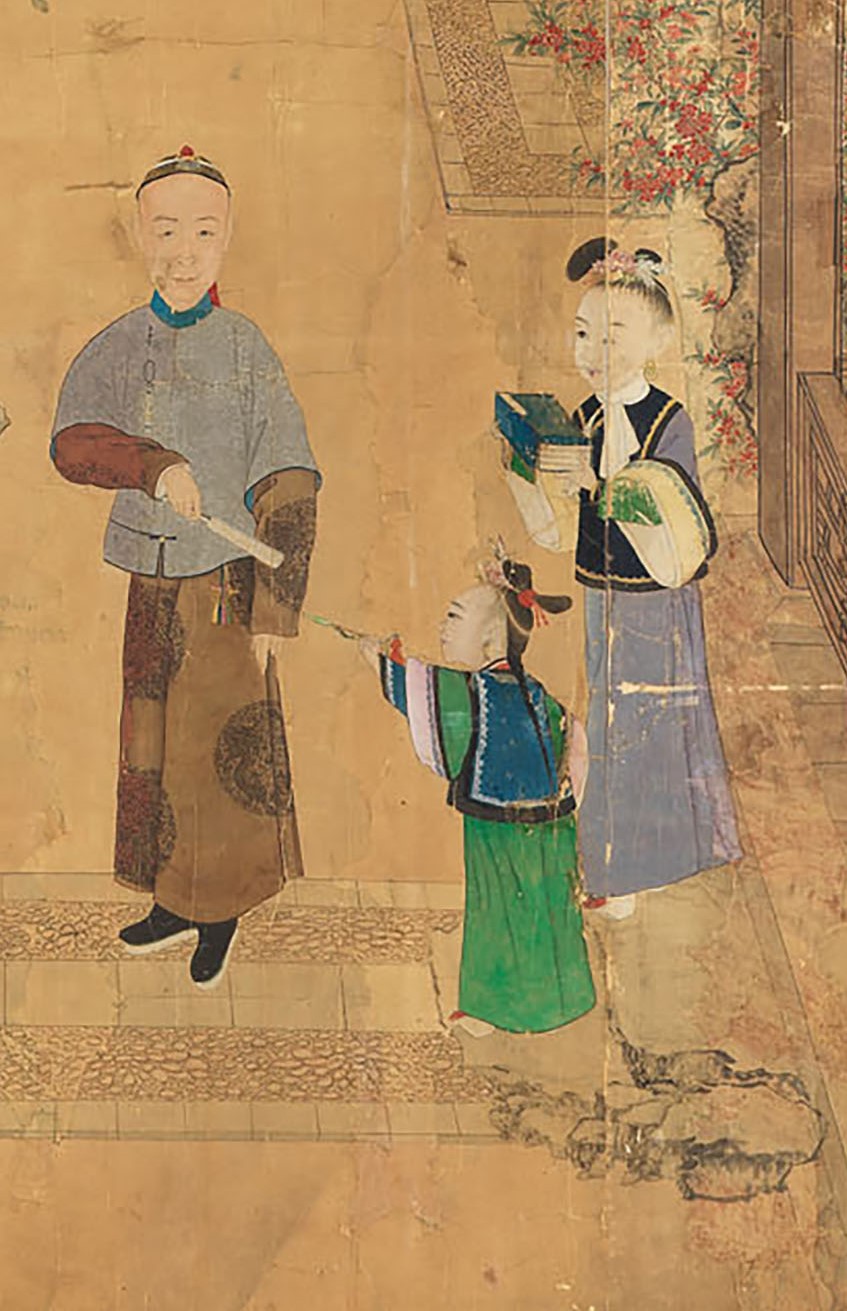|
Princess Shou-En
Princess Shou-En (December 7, 1830 – April 13, 1859) personal name unknown, was a Qing dynasty princess and the sixth daughter of Emperor Daoguang of the Qing dynasty and Consort Jing of the Borjigit clan.Initially titled Heshuo Princess,but she was later granted the title of Shou'en Gurun Princess. She was married to Jing Shou, a member of the Manchu elite. Early Life Princess Shou'en Gurun was born on January 20, 1831 (or December 7, 1830 in the lunar calendar) as the sixth daughter of Emperor Daoguang, and only daughter of her mother, Consort Jing of the Borjigit clan. Initially, she held the title of Heshuo Princess until 1844, when she was granted the higher title of Shou'en Gurun Princess. Married Life In 1845, she officially married Jing Shou, whose family belonged to the Bordered Yellow Banner of the Manchu Eight Banners. After marriage, Jing Shou was granted an official position, and later inherited the rank of First Class Duke due to his elder brother's passing ... [...More Info...] [...Related Items...] OR: [Wikipedia] [Google] [Baidu] |
Emperor Daoguang
The Daoguang Emperor (16 September 1782 – 26 February 1850), also known by his temple name Emperor Xuanzong of Qing, personal name Mianning, was the seventh emperor of the Qing dynasty, and the sixth Qing emperor to rule over China proper. His reign was marked by "external disaster and internal rebellion". These include the First Opium War and the beginning of the Taiping Rebellion which nearly brought down the dynasty. The historian Jonathan Spence characterizes the Daoguang Emperor as a "well meaning but ineffective man" who promoted officials who "presented a purist view even if they had nothing to say about the domestic and foreign problems surrounding the dynasty". Early years The Daoguang Emperor was born in the Forbidden City, Beijing, in 1782, and was given the name Mianning (). It was later changed to Minning () when he became emperor. The first character of his private name was changed from ''Mian'' to ''Min'' to avoid the relatively common character ''Mian''. This ... [...More Info...] [...Related Items...] OR: [Wikipedia] [Google] [Baidu] |
Empress Xiaojingcheng
Empress Xiaojingcheng (19 June 1812 – 21 August 1855), of the Manchu Plain Yellow Banner Borjigit clan, was a posthumous name bestowed to a consort of Mianning, the Daoguang Emperor. She was honoured as Empress Dowager Kangci during the reign of her step-son, Yizhu, the Xianfeng Emperor. She was the only Qing empress dowager who was neither her husband's empress consort nor emperor's mother. Life Family background Empress Xiaojingcheng's personal name was not recorded in history. She was a Khorchin Mongol of the Plain Blue Banner by birth. * Father: Hualiang'a (), served as a fifth rank literary official () in the Ministry of Justice, and held the title of a first class duke () ** Paternal grandfather: Kunshan () * Mother: Lady Aisin Gioro ** Maternal grandfather: Yongxi (; d. 1821), held the title Prince Su of the First Rank from 1778 to 1821, Hooge's great-great-grandson ** Maternal grandmother: Lady Namdulu (那木都鲁氏), Yongxi's primary consort * One brother * ... [...More Info...] [...Related Items...] OR: [Wikipedia] [Google] [Baidu] |
Daughter
A daughter is a female offspring; a girl or a woman in relation to her parents. Daughterhood is the state, condition or quality of being someone's daughter. The male counterpart is a son. Analogously the name is used in several areas to show relations between groups or elements. From biological perspective, a daughter is a first degree relative. The word daughter also has several other connotations attached to it, one of these being used in reference to a female descendant or consanguinity. It can also be used as a term of endearment coming from an elder. In patriarchal societies, daughters often have different or lesser familial rights than sons. A family may prefer to have sons rather than daughters and subject daughters to female infanticide. In some societies, it is the custom for a daughter to be 'sold' to her husband, who must pay a bride price. The reverse of this custom, where the parents pay the husband a sum of money to compensate for the financial burden of the wo ... [...More Info...] [...Related Items...] OR: [Wikipedia] [Google] [Baidu] |
Daoguang Emperor
The Daoguang Emperor (16 September 1782 – 26 February 1850), also known by his temple name Emperor Xuanzong of Qing, personal name Mianning, was the seventh List of emperors of the Qing dynasty, emperor of the Qing dynasty, and the sixth Qing emperor to rule over China proper. His reign was marked by "external disaster and internal rebellion". These include the First Opium War and the beginning of the Taiping Rebellion which nearly brought down the dynasty. The historian Jonathan D. Spence, Jonathan Spence characterizes the Daoguang Emperor as a "well meaning but ineffective man" who promoted officials who "presented a purist view even if they had nothing to say about the domestic and foreign problems surrounding the dynasty". Early years The Daoguang Emperor was born in the Forbidden City, Beijing, in 1782, and was given the name Mianning (). It was later changed to Minning () when he became emperor. The first character of his private name was changed from ''Mian'' to ''Min' ... [...More Info...] [...Related Items...] OR: [Wikipedia] [Google] [Baidu] |


